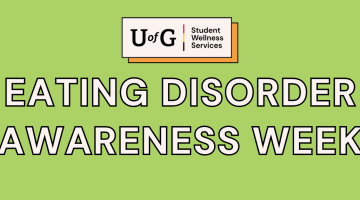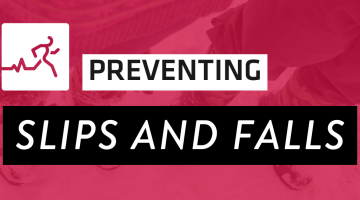#WeBelieveYou Day
What is #WeBelieveYou Day?
On September 17th, 2024, the University of Guelph is joining campuses across Ontario to participate in #WeBelieveYou day to raise awareness about sexual and gender-based violence and to show solidarity with survivors. On #WeBelieveYou day, we will be engaging the broader University of Guelph campus community by committing to one simple idea: when a survivor of sexual and gender-based violence discloses, we believe them.
#WeBelieveYou Day is an opportunity to show your solidarity with survivors of sexual and gender-based violence. On #WeBelieveYou Day, we collectively commit to one simple idea: when a survivor discloses, we believe them.
Many survivors are afraid to disclose out of fear of not being believed or blamed for the violence they've experienced. By supporting survivors and showing them they are believed, we can challenge victim blaming and create possibilities for healing, supports and safety.
Why (history, current need):
The #IBelieveYou campaign was created in 2015 by the Association of Alberta Sexual Assault Services to promote public support for survivors. Since then, it has grown to unite campuses and communities across the country to build solidarity with survivors.
Historically, survivors have been afraid to disclose for fear of not being believed or blamed which is one of many reasons why only 6% of sexual assaults are reported to law enforcement in Canada (Statistics Canada, 2019). That number is strikingly low when statistics illustrate that 1 in 3 women, 1 in 2 trans/non-binary people and 1 in 6 men experiencing sexual abuse/assault in their lifetime.
Students are disproportionately impacted by sexual violence and an estimated 70% have experienced or witnessed unwanted sexual behaviours at a post-secondary institution (Statistics Canada, 2020).
#WeBelieveYou Day recognizes that in order to create cultures of consent on campus, the whole community must participate in fostering an environment where survivors feel safe and blameless when disclosing incidents of sexual and gender-based violence.
On #WeBelieveYouDay, we will unite students, staff, faculty and community members in showing public support for survivors through our words and actions in an effort to make our campus and community safe(r) for everyone
Ways to participate in #WeBelieveYou Day :
How can you participate:
- We Believe You Day: Visit Johnston Green between 11:30am-3pm on September 20th Learn more about sexual and gender-based violence supports and education at the University of Guelph and write your own love letter to survivors to be displayed on campus.
- Supporting Survivors of S&GBV Workshop: Attend a free online workshop to learn more about how to provide trauma-informed and survivor-centric support to survivors on September 21st from 12:00-1pm. Register here.
- Expand your learning about sexual and gender-based violence:
- Creating a post or video of what #WeBelieveYou day means to you and post on social media tagging #WeBelieveYou and @wellness_uofg.
- You can also check out other learning opportunities available through the Sexual and Gender-Based Violence Office here.
- Sharing information with your office, department, club or group about #WeBelieveYou day and encourage them to participate.
Supports are available:
If you or someone you know has been impacted by sexual or gender-based violence, you are not alone and supports are available. You can connect with the Sexual and Gender-Based Violence Support Coordinator who provides coordinated support and resources following experiences of sexual and gender-based violence. They also provide consultation services to faculty and staff responding to disclosures of sexual violence. Anyone can refer a friend or themselves to the Coordinator by emailing svinfo@uguelph.ca
You do not need to disclose or make a report in order to access support. Students are also welcome to bring a support person with them to the planning or support meeting. For more information about supports available, please visit our website.
- UofG Sexual and Gender-Based Violence Support Coordinator
- UofG Counselling Services
- Guelph-Wellington Women in Crisis 24 Hour Crisis Line: 1-800-265-7233
Self-help resources:
- Learn about Sexual Violence Support on Campus
- Learn How to Support a Friend
- Cultivating Consent Culture
Sources:
6% of sexual assaults are reported to law enforcement in Canada (Cotter, A. (2019), Criminal victimization in Canada, Canadian Centre for Justice and Community Safety Statistics, Statistics Canada, https://www150.statcan.gc.ca/n1/pub/85-002-x/2021001/article/00014-eng.htm )
70% of students have experienced or witnessed unwanted sexual behaviours at a post-secondary institution. (Burczycka, M. (2020), Students’ experiences of unwanted sexualized behaviours and sexual assault at postsecondary schools in the Canadian provinces, Canadian Centre for Justice and Community Safety Statistics, Statistics Canada, https://www150.statcan.gc.ca/n1/pub/85-002-x/2020001/article/00005-eng.htm




